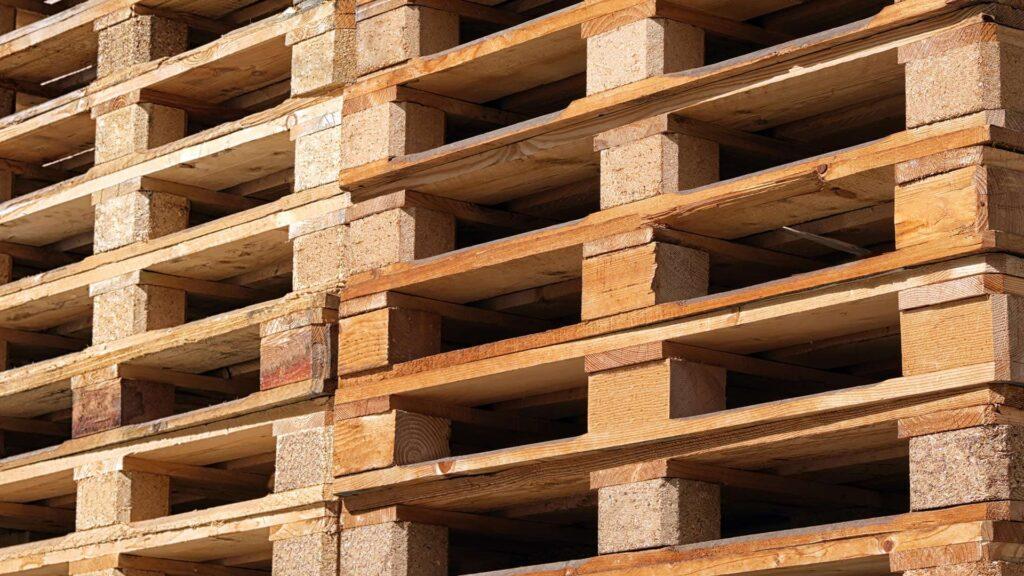At QCP, we understand the importance of selecting the right pallet for your specific shipping requirements. Pallets provide a secure and stable foundation for your products, ensuring they arrive at their destination safely and efficiently. But with an array of pallet options available, understanding the distinctions between heat-treated and non-heat-treated wood pallets is crucial, especially when navigating international shipping regulations.

The Core Difference: Treatment Approach
The primary difference between these two types of pallets lies in the treatment process they undergo to safeguard against pests:
- Heat-Treated Pallets: These pallets undergo a rigorous heating process, typically reaching temperatures of 140°F for 30 minutes. This entirely natural method eliminates any insects or larvae present in the wood, ensuring pest-free transport.
- Non-Heat-Treated Pallets: These pallets may not receive any specific treatment, or they might be treated with chemical solutions to deter pests. However, the use of chemicals can introduce complexities, especially when considering international shipping regulations.
International Shipping and ISPM 15 Compliance
When it comes to international shipping within the QCP network, the type of pallet you choose becomes a critical factor.
- Heat-Treated Pallets: These are the gold standard for international shipping. They comply with ISPM 15, the International Standards for Phytosanitary Measures No. 15. This regulation aims to prevent the spread of plant pests and diseases through wood packaging material. Each heat-treated pallet from QCP is stamped with an internationally recognized mark, simplifying customs clearance and ensuring a smooth transit process.
- Non-Heat-Treated Pallets: These pallets may face restrictions for international shipping within the QCP network. Individual countries may have regulations prohibiting the import of untreated wood pallets to prevent the introduction of invasive pests.
Selecting the Right Pallet for Your QCP Shipment
Here’s a quick guide to help you determine the most suitable pallet for your QCP needs:
- Domestic QCP Shipments: For domestic shipments, QCP offers non-heat-treated pallets may be a viable option, depending on the specific requirements of your goods and any regulations within your region.
- International QCP Shipments: For international shipments, QCP heat-treated pallets are the safest and most reliable option. They guarantee compliance with international regulations and minimize the risk of delays or issues at customs.
Benefits Beyond International Shipping
While international regulations are a key consideration, heat-treated pallets offer additional advantages:
- Reduced Pest Infestation Risk: The heat treatment process eliminates existing pests and prevents future infestations, protecting both your goods and the environment at the receiving location.
- Enhanced Durability: Heat treatment can improve the overall strength and durability of the wood, making the pallets more resistant to moisture and warping, ensuring the integrity of your products throughout transport.
Partnering with QCP for Your Pallet Needs
At QCP, we are committed to providing you with the best possible solutions for your shipping requirements. Our team of experts can advise you on the most suitable pallet type, whether heat-treated or non-heat-treated, to ensure your products arrive safely and efficiently at their destination, adhering to all international regulations.
By understanding the distinctions between heat-treated and non-heat-treated wood pallets, you can make informed decisions that contribute to a smooth and successful shipping experience within the QCP network. Contact QCP today to discuss your specific needs and find the perfect pallet solution for your next shipment.